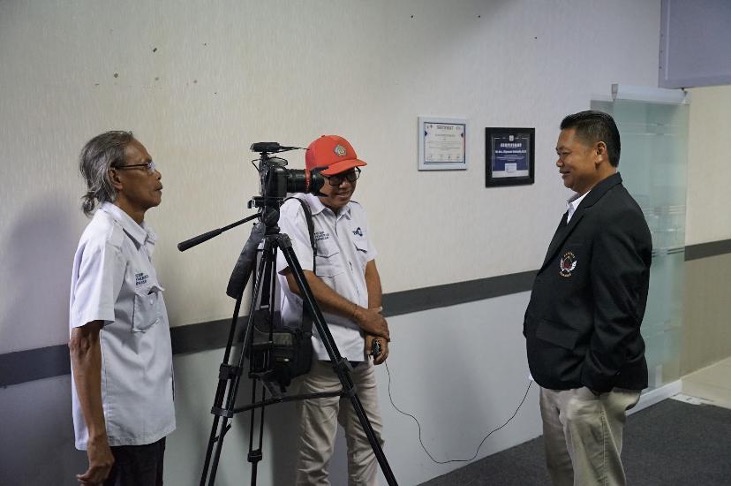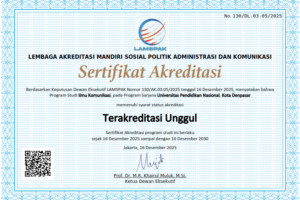
Integrating Religious Values in Education to Build Character
Denpasar – In this modern era, the role of education is not limited to the transfer of knowledge but also to the shaping of the character of the younger generation. Dr. Drs. I Nyoman Subanda, M.Si, a lecturer from Universitas Pendidikan Nasional Denpasar, in his inspiring narrative, provides a unique perspective on the importance of religious values in daily life, which can be reflected in our education system in 2024.
Dr. Subanda shares his experience interacting with a German student, Lisa, who offered a simple yet profound view of religion, which she expressed in an article on the online media atnews.id: “Religion is a Brake.” Lisa said, “Religion is a brake for bad thoughts, actions, and words. If you have bad thoughts, you must brake immediately; if you behave inappropriately, hit the brake; if your words are not true, hit the brake. The goal is to reduce and, if necessary, stop bad thoughts, actions, and words.” This view emphasizes that religious values can function as essential self-control in a person’s life.
Inspired by this perspective, it is important for us to incorporate character education based on religious values into the national curriculum. Amid technological advancements and globalization, we often see the younger generation losing direction and ethics in their daily lives. The religious values taught in schools can guide them to understand the importance of integrity, honesty, and responsibility.
We can certainly see that character education should be taught holistically, emphasizing the importance of morals and ethics derived from religious teachings. This does not mean teaching the dogma of a particular religion but rather teaching universal principles such as compassion, tolerance, and respect for others. In this context, religion becomes a tool that helps students develop better self-reflection and self-control abilities.
In his writings, Dr. Subanda also reminds us that, “Religion should not be treated like a car. You maintain it, clean it, ride it, and then crash it. Religion should not make you troubled or be used to trouble others.” This message is relevant to our education system, where we need to ensure that the values taught do not become burdens but rather sources of strength and inspiration for students.
Integrating character education based on religious values into the curriculum can be done in various ways. For example, through extracurricular programs, community service projects, and ethical discussions that encourage students to think critically about the application of moral values in real life. This aligns with the “Merdeka Belajar” concept launched by the Minister of Education and Culture, where students are given the freedom to explore and internalize positive values more deeply.
Thus, religious values in education not only shape individuals who are intellectually intelligent but also possess strong character and good morals. Education that integrates religious values will produce a generation that is not only knowledgeable but also wise in action and noble in daily life.



